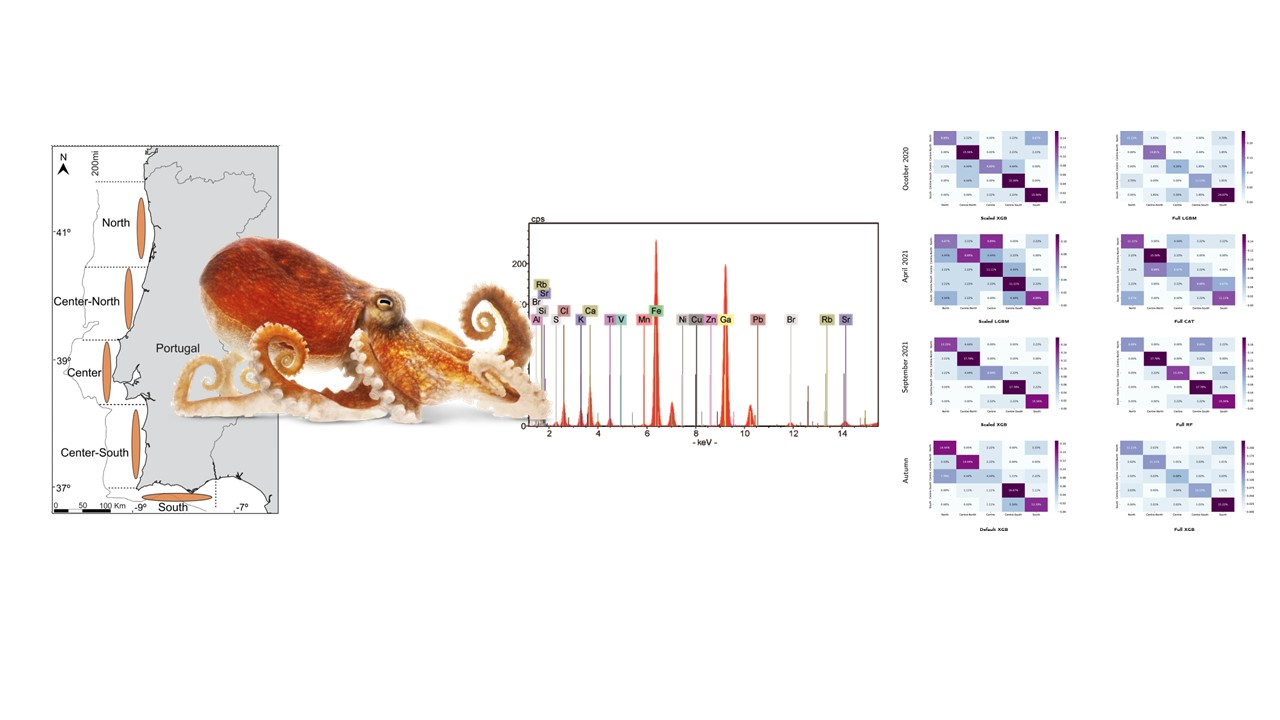Researchers from LASIGE and MARE developed a novel machine learning approach to trace the geographical origin of the common octopus (Octopus vulgaris) along the Portuguese coast. This study, published in the top 10% journal Food Control, integrates elemental and total reflection X-ray spectral fingerprints with sophisticated machine learning models to enhance seafood traceability and authenticity. The resulting paper “Integrating elemental and total reflection X-ray spectral fingerprints with machine learning for advanced seafood traceability” was authored by LASIGE’s at the time PhD student Nuno M. Rodrigues, integrated researcher Sara Silva, Vanessa F. Fonseca, Susanne E. Tanner, and Bernardo Duarte from MARE, and Renato Mamede from ECOMARE.
The issue of seafood traceability has gained global significance due to the challenges posed by mislabeling and origin fraud, which undermine consumer trust, sustainable resource management, and equitable trade practices. The common octopus, a highly valued cephalopod species in Southern Europe, is particularly susceptible to these risks. This study offers a data-driven approach to verify capture locations and ensure that seafood products genuinely originate from sustainable Portuguese fisheries.
The paper is available here.

